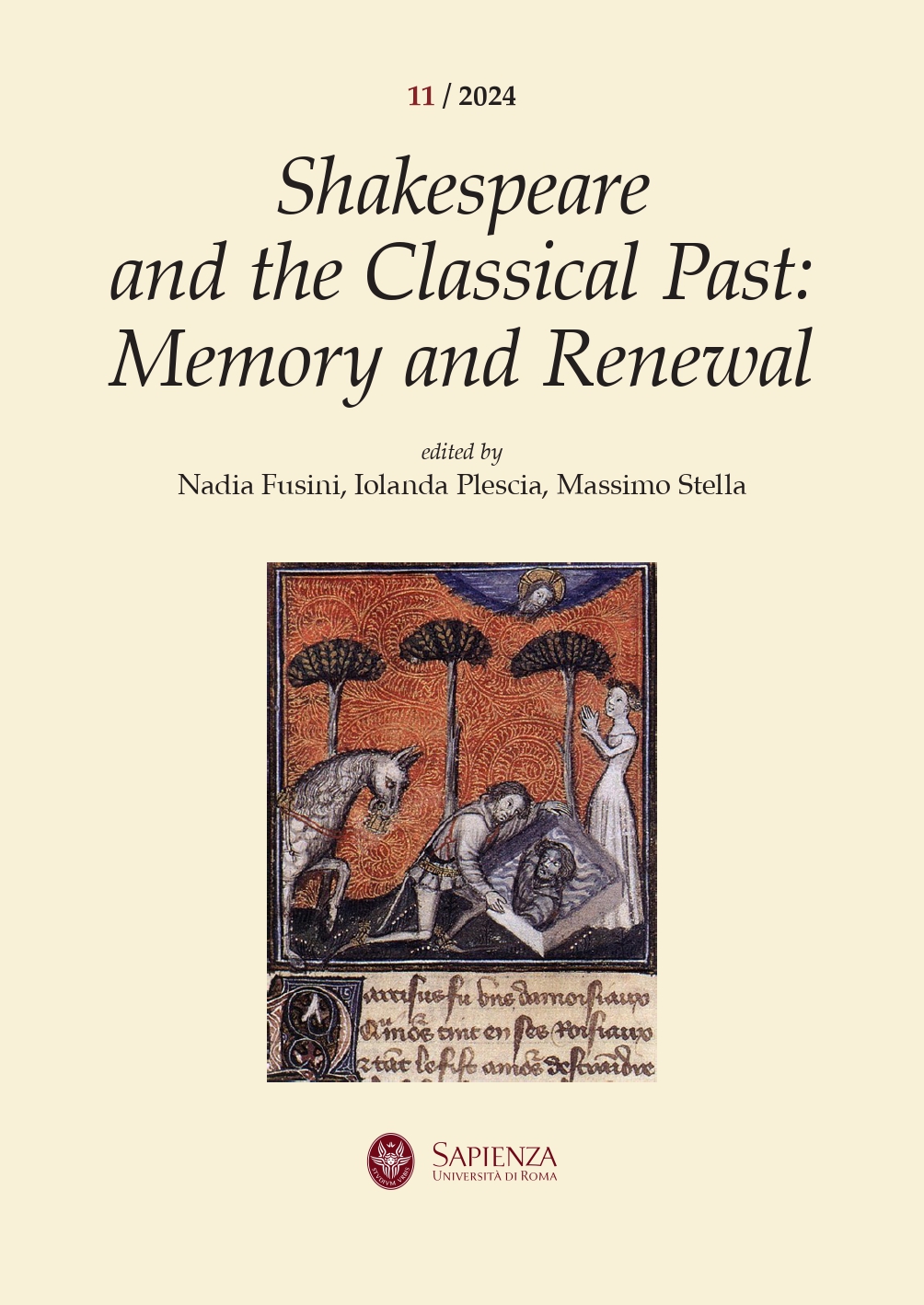Shakespeare e l’Antico tra A Midsummer Night’s Dream e Antony and Cleopatra
DOI:
https://doi.org/10.13133/2283-8759/18978Keywords:
A Midsummer Night's Dream, Antony and Cleopatra, wordplay, linguistic error, comedy, classical antiquityAbstract
This paper offers a reflection on a few words – or rather, on a few linguistic elements – which operate in two of the best-known plays by Shakespeare, A Midsummer Night’s Dream and Antony and Cleopatra: the word ‘wall’, with its ghostly synonym ‘mural’ (A Midsummer Night’s Dream); and the words ‘immortal’ and ‘falliable’ with their respective ghostly antonyms: ‘mortal’ and ‘unfalliable’ (Antony and Cleopatra). These two plays are chosen because one, the Dream, belongs to the beginning, and the other, Antony and Cleopatra, to the end, of a long exploration of the enigmatic experience called ‘love’. It is within this framework that this paper aims to reconsider the idea of ‘classical antiquity’, not primarily and not only as textual memory of the classical tradition, but as a presence which is found through and inside elements of language, through the spiral of word-play, pun, and lapsus, of linguistic error and of its ensuing comic effect.


